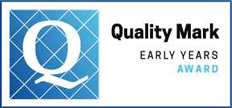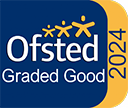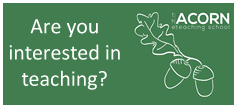Assessment & Learning
Our Curriculum: How the children learn and how we assess
At Willow Nursery School, we consider the following in our nursery school curriculum:
- The Early Years Foundation Stage Curriculum
- Birth to Five Matters
- Willow Nursery School Curriculum Intent and Ambitions – 7 c’s
- Willow Nursery School Key Skills
- Forest School
- Core books, reading and phonics
These are explained in more detail in the ‘Curriculum’ section on our website.
Children in the early years learn by playing and exploring, being active, and through creative and critical thinking which takes place both indoors and out. So, when you come into nursery, you may think your children are just ‘playing’. Our skilled and experienced practitioners set the rooms out thoughtfully and sensitively to encourage the very best learning opportunities to happen. A large part of the teaching is when the adults then very sensitively intervene in the children’s play to extend their language, concentration, understanding, enjoyment and knowledge.
This is done by introducing new vocabulary, adding in new resources or challenges, asking questions and making suggestions. Staff get to know the children extremely well and seek to utilise the children’s interests wherever possible. They also use their in-depth knowledge of each child to learn when to step in, when to challenge to stretch the children on further and when to offer support. Research shows that children learn best when engaged in well thought out activities that stem from their interests. So, for example, children that enjoy role-play being builders will be given lots of clipboards and pencils to experiment with mark making, large blocks to extend their co-ordination and physical development, with language being developed all the time, and personal, social and emotional development, through the encouragement of collaborative play.
Most of the time at nursery is spent learning through play with the adults alongside the children exploring the activities. All children have a set group time every day in small groups. This is an opportunity to develop concentration, extend language, develop listening skills and learn to be part of a group.
At Willow, we have a programme of group time activities that offer them different experiences throughout their time at Willow Nursery School. These include:
- structured music sessions using the ‘Da Capo’ music programme
- sharing and learning about books by using ‘big books’
- a twelve week programme learning about stories using the oxford reading tree characters Biff, Chip and Kipper
- a ten week programme learning about maths through appropriate stories
- a ten week dance programme
- Theraplay
- A twenty two week programme teaching the children phonics in a fun way.
Children in ‘Little Nursery’ are encouraged to come and join in with a short story, singing or themed session. These have been carefully planned for.
In addition to this, children are offered weekly sessions in ‘big nursery’ which promote early literacy skills through activities set out in the DFES Letters and Sounds Document and also early mathematical skills.
Children are offered a ten week ‘basic skills’ group in the term that they turn four. These sessions are 20-25 minutes long and children work in groups of 6-8 with a member of staff in a quiet room. The children have a ‘mini lesson’ which focuses of either maths or literacy and helps build upon their previous knowledge and skills.
In terms of understanding how well your children are learning, we:
- observe and assess informally all the time. Keyworkers write observations on children regularly relating to our 7 C’s curriculum.
- assess the children termly to ensure that they are on track with their learning and development. These assessments are analysed by keyworkers and curriculum co-ordinators.
- A year book is put together during your child’s time at Willow and this includes observations, photos and work completed by your child in the different areas of the curriculum. These yearbooks are for you to keep when your child leaves Willow Nursery School.
- We verbally share your child’s progress at parental consultations. Parent’s consultations are offered with your child’s keyworker every term. When your child leaves us, we share a transition progress summary with their receiving school. However, if at any time you have concerns about your child’s progress please do talk to your child’s keyworker, we are always happy to help and there are many things we can do together to ensure your child is making the best possible progress.
For children with additional needs we offer 1:1 and small group development opportunities to help children develop in specific areas as identified by parents and staff.
We produce a weekly newsletter that should keep you updated on what your child is learning about and how you can help your child to learn at home.



